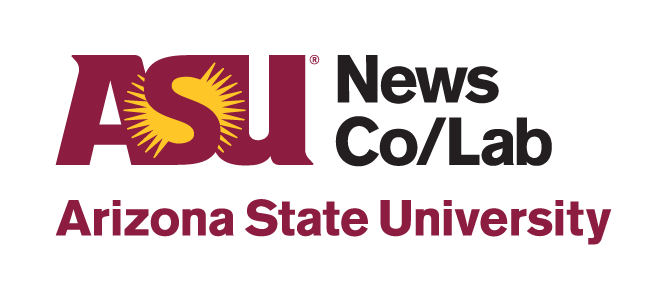Summer update: new partnerships to help the demand side

Kristy Roschke announces exciting partnerships between libraries and our newsroom partners, as well as some other updates about the lab’s busy summer.
Last week’s series of 110-plus-degree days is a sure sign summer is here in Phoenix, but that isn’t slowing us down in the News Co/Lab. We continue to add to our list of partners as we prepare to launch several news awareness experiments in the coming months.
Collaboration is at the core of what we do in the News Co/Lab (that’s how we decided upon our name, in case you were wondering). Our goal is to amplify, connect and help measure the best of what’s already happening in the fields of news, media, information and digital literacy. The best way for us to help improve people’s news awareness is to help scale proven best practices.
Library partners
We are excited by the great interest we’ve had from the libraries in our three McClatchy partner cities of Macon, Kansas City and Fresno. As others have noted, we believe libraries are perfect partners for improving the community’s trust in journalism. We also see great benefits in newsrooms and libraries partnering to teach people how to be smarter news users, particularly to older audiences who are no longer in school.
In Macon, we’ll be partnering with a trainer from the Center for News Literacy at Stony Brook University and the Middle Georgia Regional Library on a train-the-trainer workshop to prepare librarians to help their patrons make sense of the news. The session will be based on the successful program Stony Brook and the American Library Association piloted last year.
Kansas City’s working group also includes representatives from the Kansas City Public Library. They are brainstorming several partnership ideas, including a community question-and-answer program that involves reporters from the KC Star in neighborhood branch libraries. The first such meeting took place last month, and the next is scheduled for early July. The goal of the Q&A is to help residents find answers to their questions about their community, and about how the Star does its journalism. The Star is learning more about the places it covers in the process. This is a collaboration that we all hope will lead to deeper and richer engagement, and better journalism.
In other partner news
Our Fresno working group is planning a deep community conversation with dialogue journalism experts Spaceship Media. We are big fans of Spaceship and recently profiled their work in our Best Practices. We think bringing the community together to discuss issues in conjunction with the Fresno Bee will have a number of positive outcomes, including an increased awareness of the reporting process and a deeper personal connection to the paper.
The Telegraph, in partnership with the News Co/Lab, is looking forward to Report for America reporter Samantha Max starting in Macon. Samantha will have a community-driven beat, working with residents to cover stories of greatest interest to them in the area of health.
News awareness community surveys
We recently closed our community news awareness surveys and our partners at the Center for Media Engagement have entered the data analysis phase. We will also soon be publishing results from three national surveys we conducted in partnership with Google Surveys. Initial findings indicate that people think differently about local news than they do about the media in general — a finding similar to the Media Insight Project’s recent report that Americans’ trust in their preferred media has increased in the last year and that newspaper subscribers have more positive views about their local paper than non-subscribers.
Spreading the word
May was a busy travel month for Dan, who gave talks and participated in panel sessions at New America, the Global Editors Network Summit and RightsCon. The entire News Co/Lab team also presented at a workshop for the Mayo-Cronkite School Medical Journalism Fellowship.

Kristy Roschke, managing director of the ASU News Co/Lab, is a media scholar and educator. Her research interests include misinformation, media literacy education and media trust. Roschke has developed curriculum and taught journalism and media literacy courses at the high school and university level for nearly 20 years.
